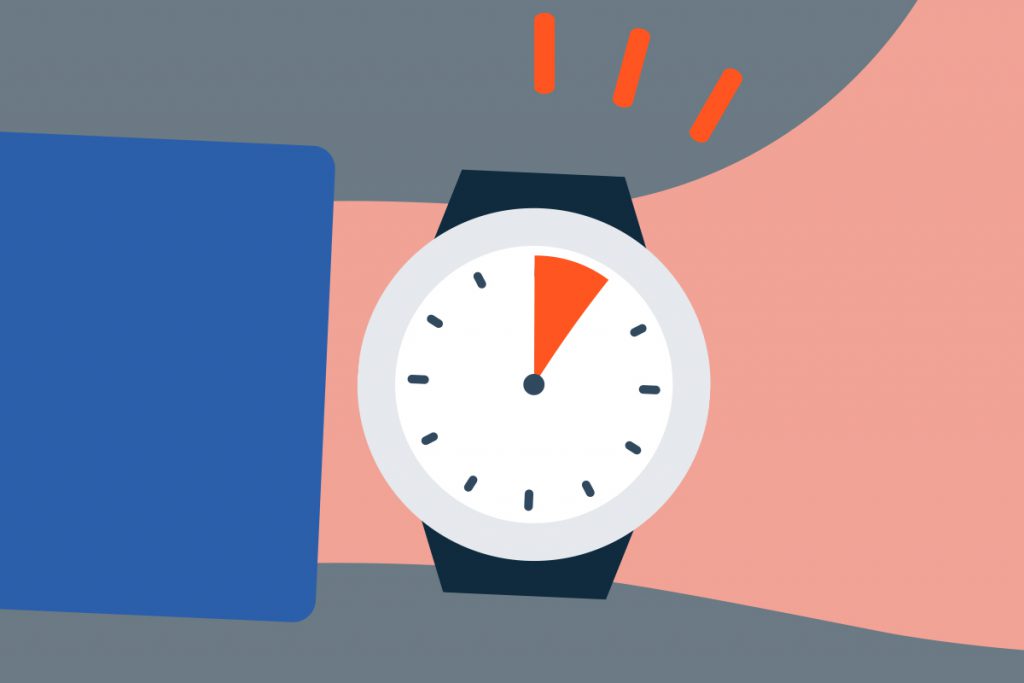Everybody procrastinates but many of us do so at least once a day. There are multiple reasons why you might be doing it, ranging from poor time management skills to perfectionism. It can happen because of boredom, because you’re working too long without taking a break, or because you are unsure about the next step in your project. Whatever the cause is, you are probably wondering how to stop the procrastination spiral? This post outlines seven tips that can help you get productive again.
1. Analyse what you are doing

Taking a step back, reflecting, and being more conscious of what is driving your behaviour will help. Procrastination usually happens when your mind is on auto-pilot, or while you’re trying to distract yourself from the work that lies ahead. Take a moment to be honest with yourself about why you are procrastinating. Make a list of the reasons why don’t want to pick up your work, take a break, and look at the list again after five minutes. Can you do anything right away to solve one of the issues? Start there.
2. Create a reward list

While you are working (or trying to), keep a piece of paper on your desk on which you write down all the distractions that you want to pursue instead of doing your work. It can be anything from checking your phone to checking your favorite website to watering the plants. Just write down anything that pops up in your head. You can then use the list as a series of rewards to indulge after you’ve worked for an hour without interruptions, or for when you are done with your workday. That way you’ll feel better doing the things on your list than you would have if you pursued them during work time. Also, you’re likely to find out that the things you wrote down that seemed irresistible during work aren’t all that worthy of your time.
3. Work for 5 minutes

This might sound strange, but working for five minutes can give you a good sense of the actual tasks you have to do, not the imaginary ones that keep growing worse in your head. Just look at the clock and promise yourself that you’ll do the work for five minutes and dive in. It’s likely that you’ll end up working longer than planned, and even if you don’t, you’ll have gained a more realistic sense of the work that lies ahead.
4. Break your work up into smaller chunks

It’s hard to start working on a task that you know you can’t finish today. Try writing down all the steps to your goal. This way you create manageable parts of it that you can complete within one working session. Checkmark the steps that you have completed, so that you get a better sense of the progress you are making. Of course, you will probably realise that you can’t see all of the steps ahead of you quite yet. This might explain why you have difficulties starting with the work in the first place and why are you are letting yourself to the mercy of procrastination.
5. Make your go-to distractions less accessible

It can be difficult to constantly keep distractions in check by the sheer power of will, so simply make it harder to reach them. Take a critical look at what causes you to procrastinate and find out how you can limit your access to it. For example, if you work with an internet-connected laptop, try using an application that restricts your access to certain websites. Set your phone to aeroplane mode more often while you are trying to work, so that you don’t feel tempted to check it while you are in a good workflow, or simply place it across the room from you and out of your immediate physical space.
6. Get a work buddy

Accountability can really make a difference if you have trouble keeping yourself motivated to work. Agree with a friend or colleague to keep a check on your daily or weekly progress and promise to do the same for them in return. By sharing a list of goals that you want to complete, you’ll find a way to celebrate accomplishments, put into perspective what didn’t work out, and give social support. Feeling like you are part of a duo and knowing that you’re not the only one who struggles to stay focused makes a difference.
7. Don’t clear your schedule

Though it might be tempting to clear your agenda to give you as much time as possible to focus on your work, this strategy often ends up being counterproductive. If you don’t have anything to do in the evening, it will be easier to procrastinate during the afternoon, because you know that you still have plenty of time to complete your tasks later in the day. This is exactly how you miss out on spending quality time though. Use the fact that you have plans to meet friends or exercise in the evening as motivation to get started with your day early and not waste too much time. Actively plan free-time activities and focus on getting your tasks done in a realistic time span. You’ll be surprised how much work you can get done in the 35 minutes before you have to get going.
Final thoughts
Maybe your procrastination habit is telling you something. If you already know that you’re not going to be productive on the day that’s ahead of you, it’s better to take some time off. Take the break from work that you would essentially be taking anyway – the amount of work you will produce will be the same. Step away from your tasks, plan a fun day (or part of the day), reflect a bit on your current project, and return to it later with your energy and motivation renewed.
And don’t be too hard on yourself. Keep in mind that productivity, creativity, and motivation come and go. It perhaps makes the most sense to think of them as cyclical, always in motion. Be realistic about the amount of time you can work without losing your concentration. It’s better to underestimate your productivity goals than to overestimate them. If your goal is to work hard for six hours and you end up working hard for five, it will feel like you failed. If your goal is to work hard for four hours and you end up working hard for five, it will feel a lot better.